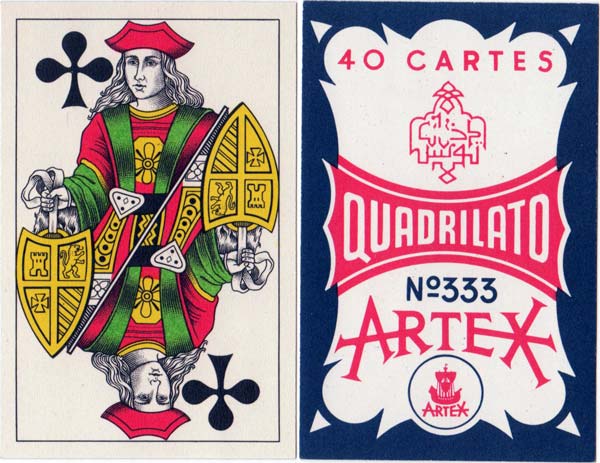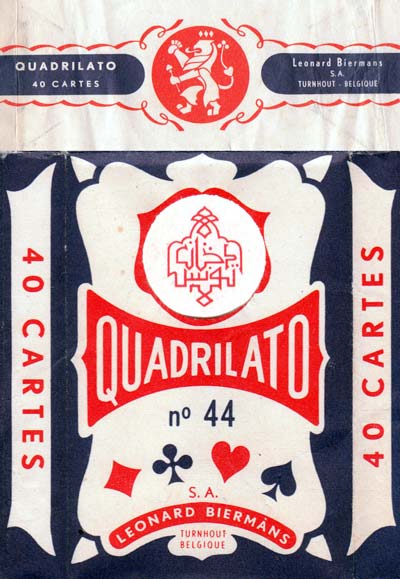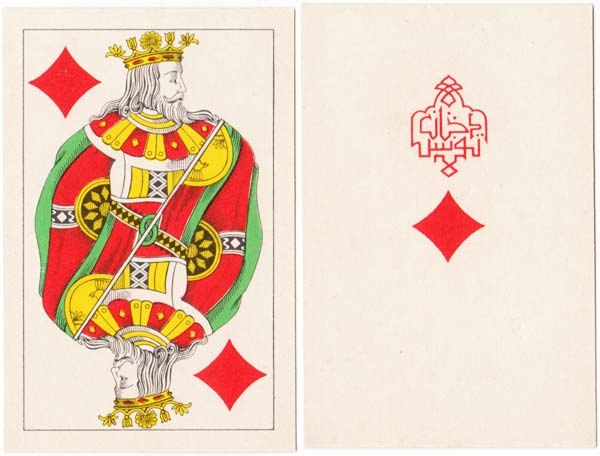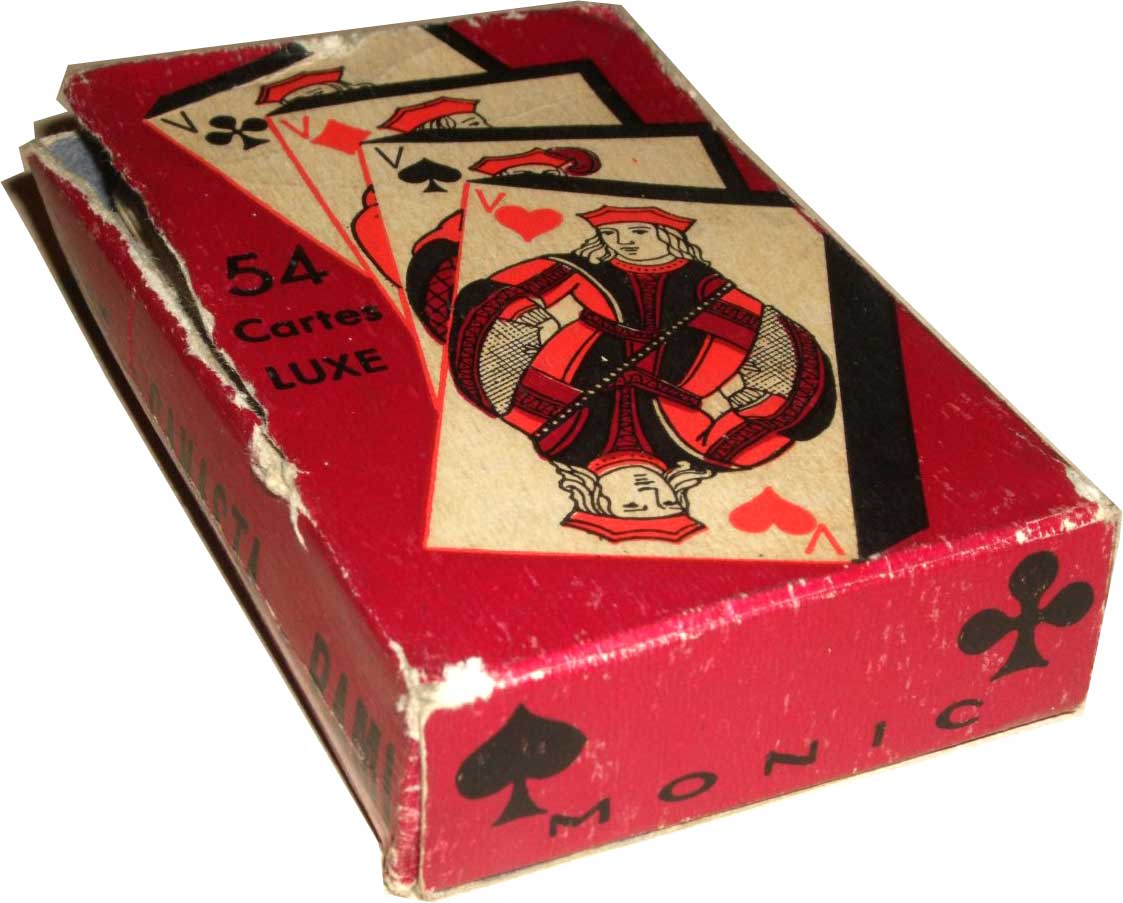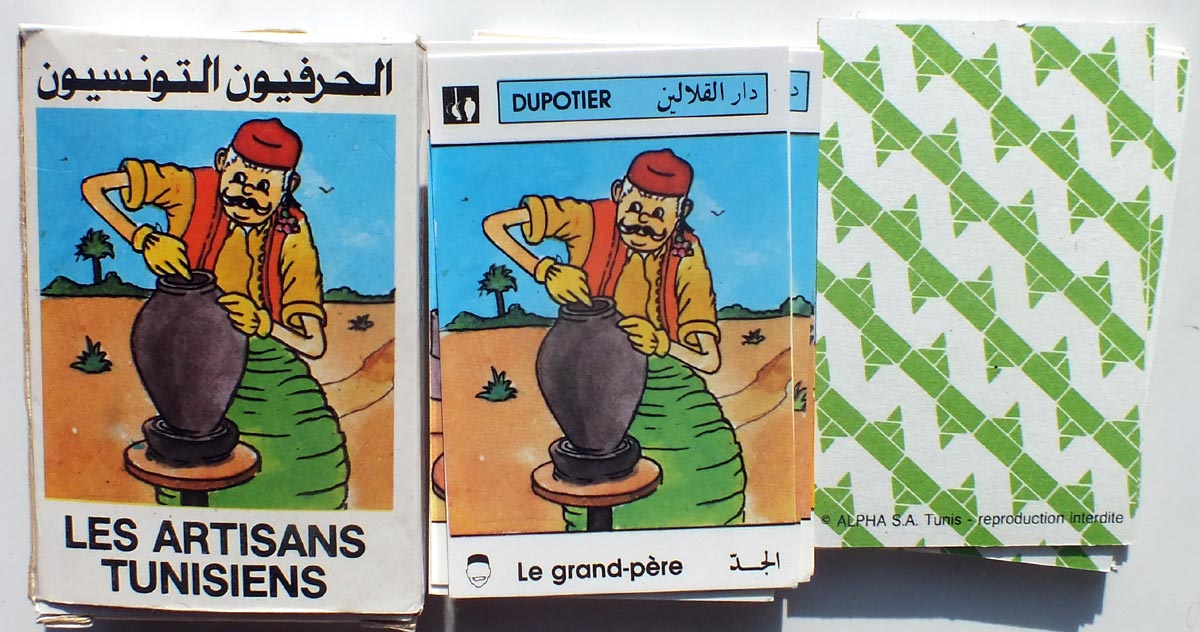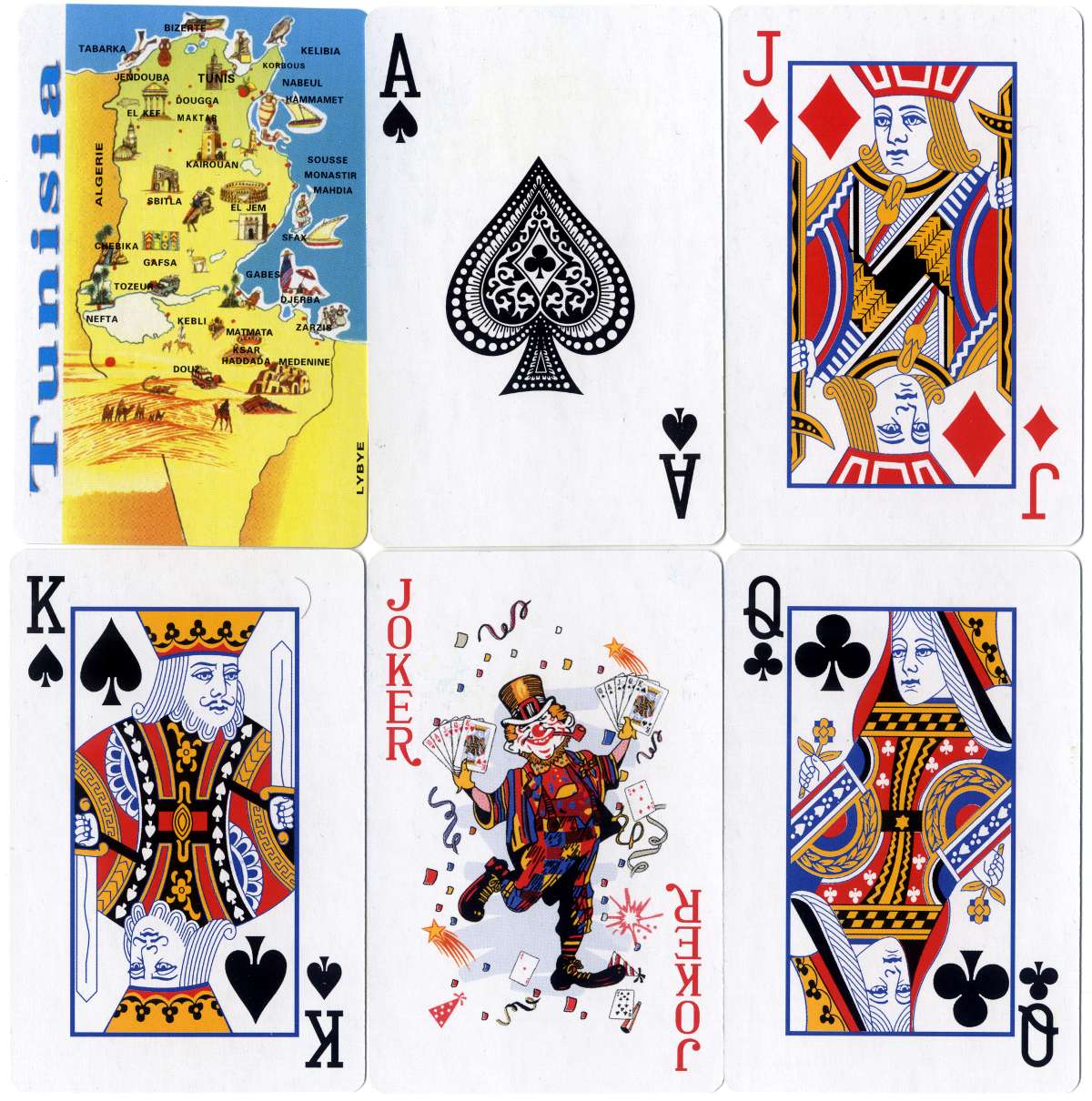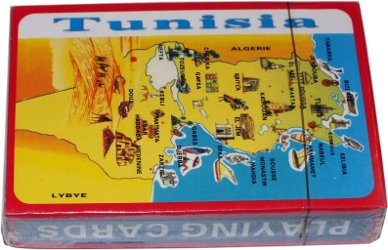Tunisia
Playing Cards in Tunisia. Chkobba is one of the most popular card games in Tunisia, mainly played by men in coffee shops but also played at home by men and women alike.
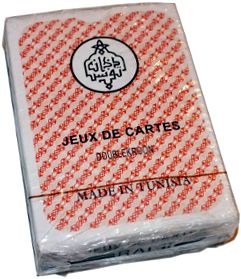
Playing Cards in Tunisia
Gambling was prohibited in Tunisia until after World War 1 and this probably stifled any local production. The 1st law organizing the tobacco sector in Tunisia appeared in 1898 and matches, salt and playing cards were subsequently added (c.1920) to products managed by the monopoly more →. Playing cards in Tunisia have followed French influence, and many packs for Tunisia have been made in Belgium, but cards currently on sale appear to be standard Anglo-American Bridge or Poker packs sold in tobacco shops, as well as souvenir packs made in China. Locally produced packs usually carry a tax stamp of some kind and since the 1970s they have an imprint, usually on the Ace of Diamonds, which refers to the playing card monopoly.
Right: cello-wrapped box from "Jeux de Cartes RAMI" made in Tunisia, 2012 →
The ‘Rami’ deck shown below is presumably a pun on the game Rummy.
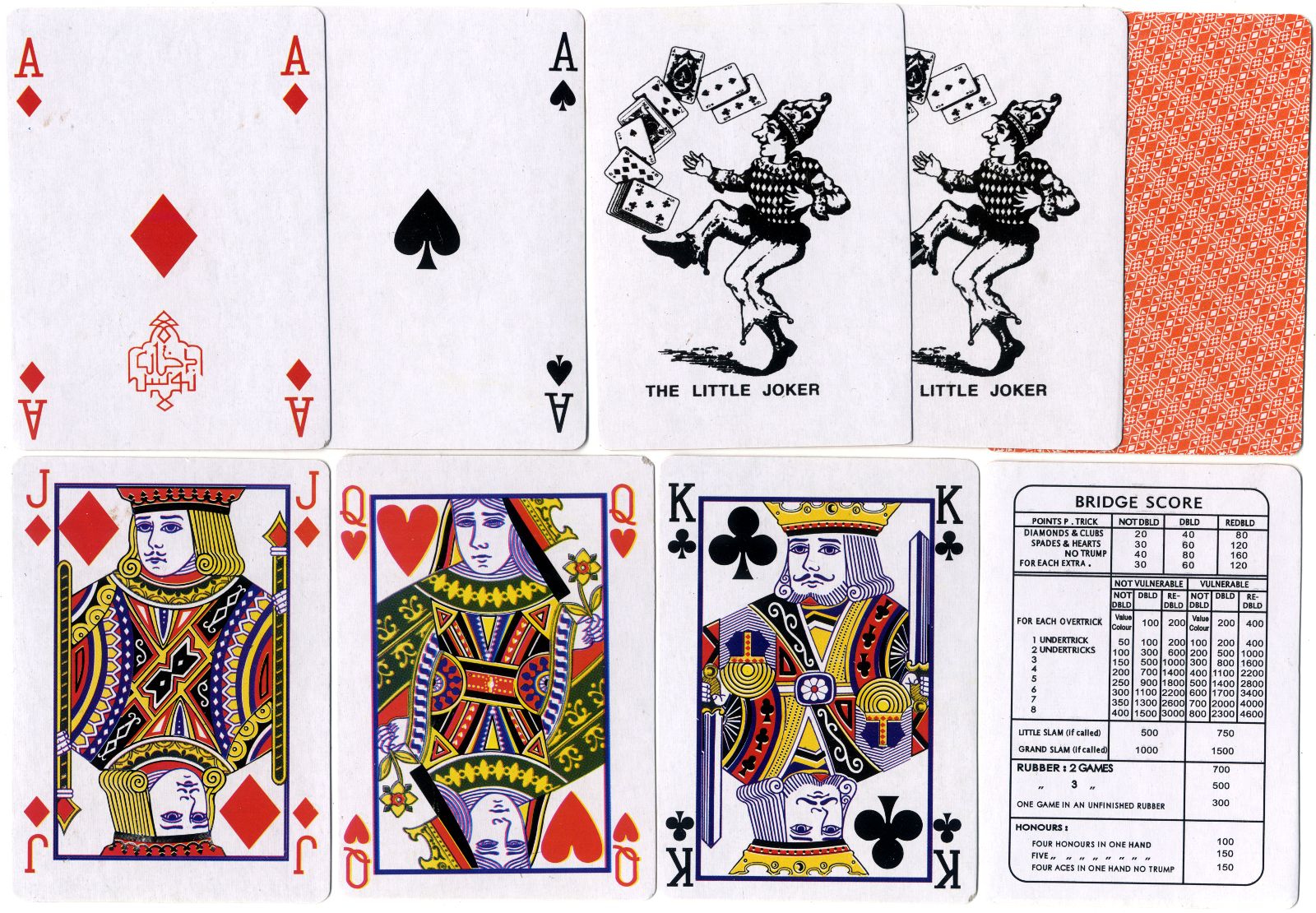
Above: 'Rami' playing cards made in Tunisia (2012), with standard Anglo-American courts and two 'Little Jokers'. The imprint of the national tobacco and playing card monopoly can be seen on the Ace of Diamonds. 52 cards + 2 Jokers + Bridge score card in box. 'Rami' playing cards seem to have been in production for several decades.
-
See earlier examples
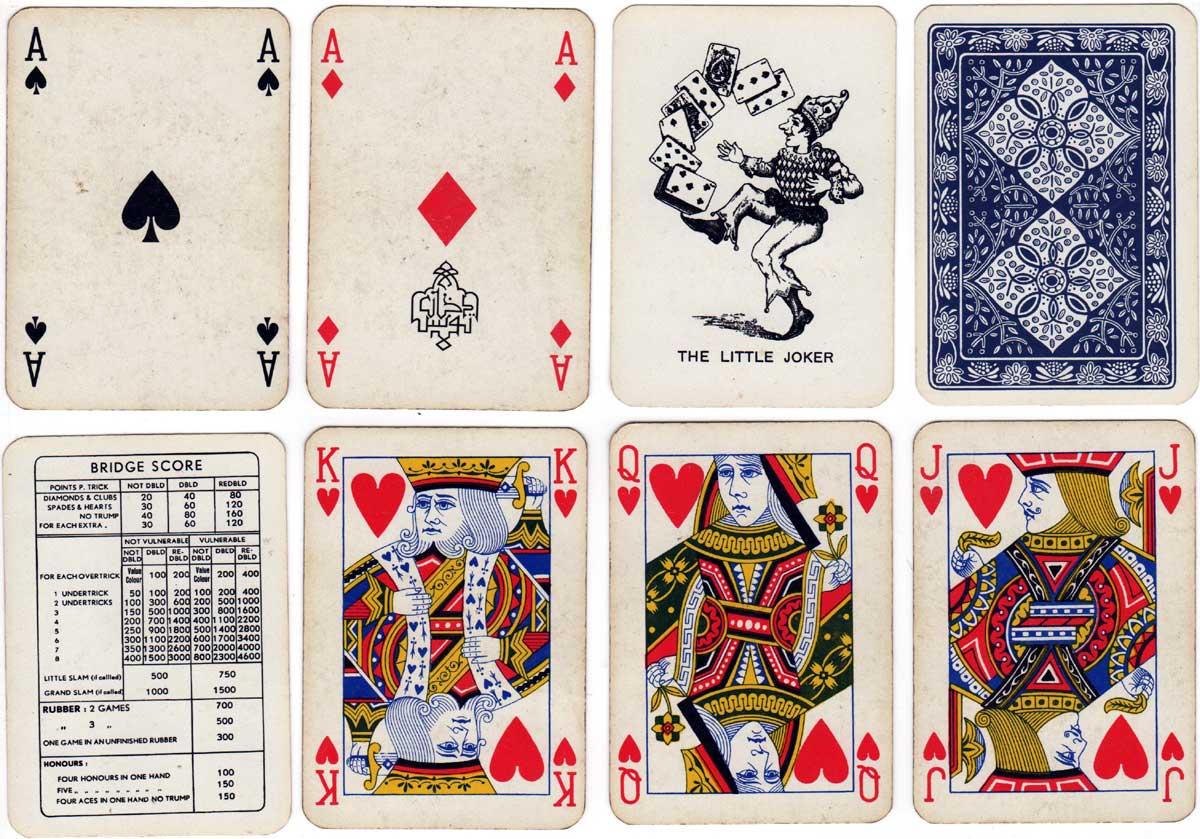
Above: ‘Double Kroon’ playing cards made in Belgium for Tunisia, probably by Mesmaekers c.1960. Image courtesy Matt Probert.
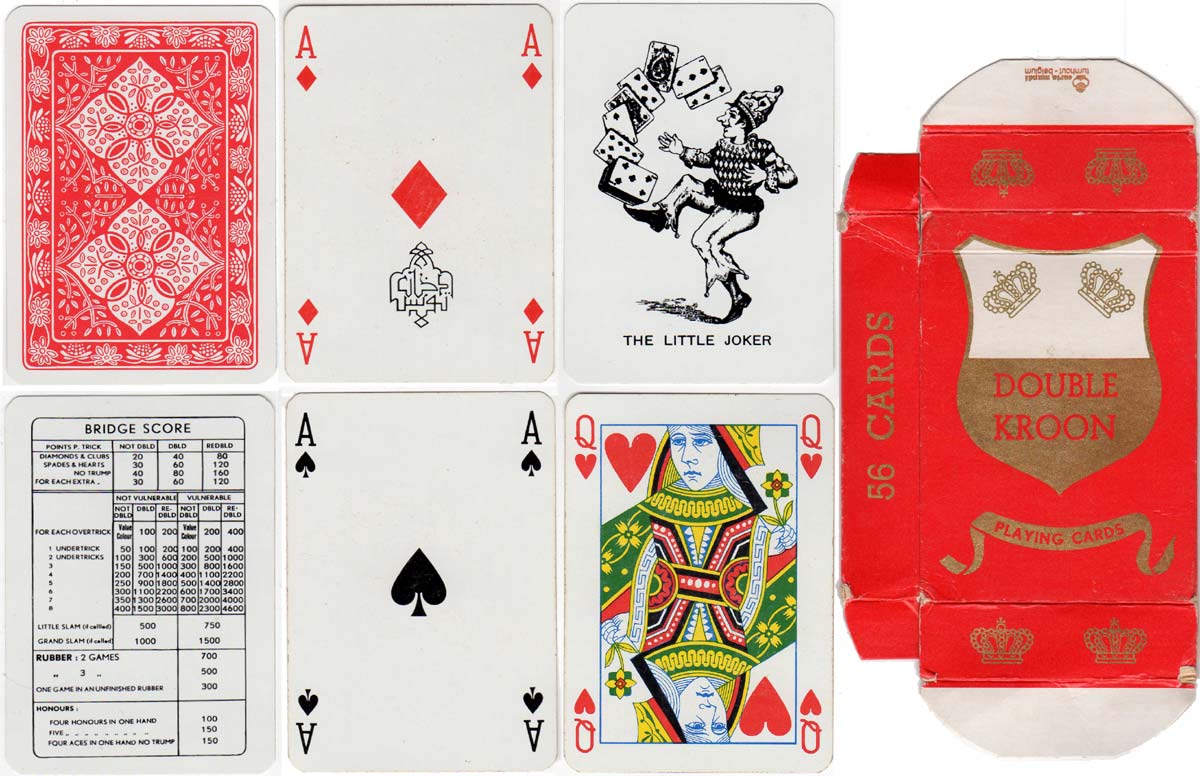
Above: ‘Double Kroon’ for Tunisia made in Belgium by Carta Mundi. 52 cards + 3 jokers + bridge scores card in box. Image courtesy Matt Probert.
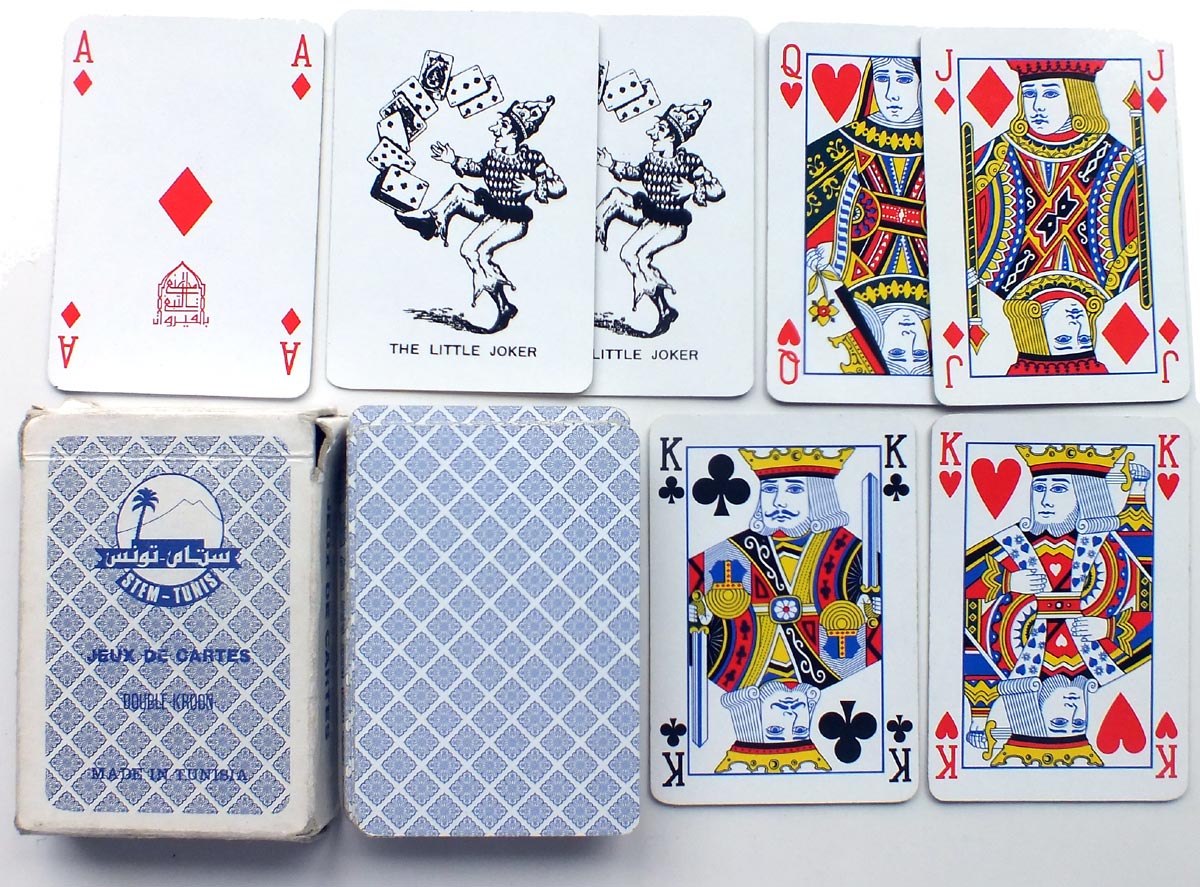
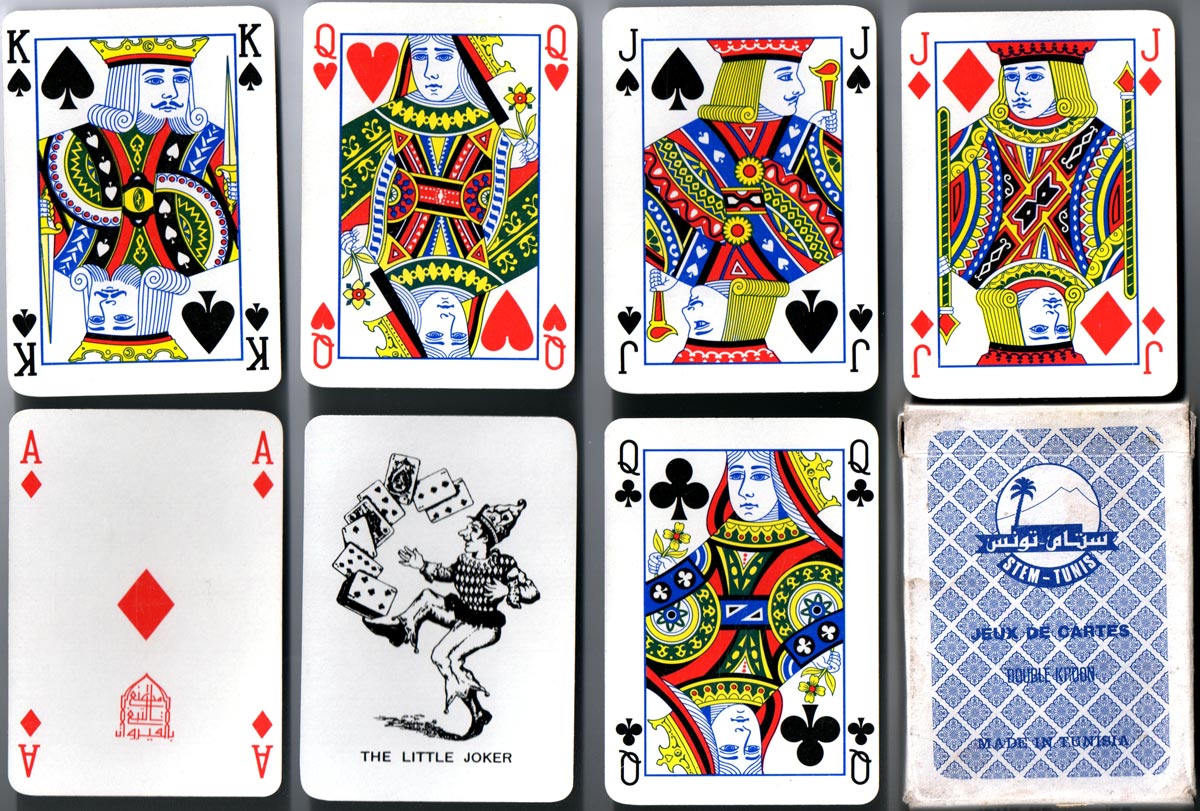
Above: 'Rami' playing cards made in Tunisia, c.1975
See also: STEM (Société Tunisienne des Emballages Modernes) website→
In hot weather Tunisian men sit around with their shirts off playing cards in the cafés. Chkobba is one of the most popular card games in Tunisia, mainly played by men in coffee shops but also played at home by men and women alike.

By Simon Wintle
Member since February 01, 1996
Founder and editor of the World of Playing Cards since 1996. He is a former committee member of the IPCS and was graphics editor of The Playing-Card journal for many years. He has lived at various times in Chile, England and Wales and is currently living in Extremadura, Spain. Simon's first limited edition pack of playing cards was a replica of a seventeenth century traditional English pack, which he produced from woodblocks and stencils.
Trending Articles
Popular articles from the past 28 days
Related Articles
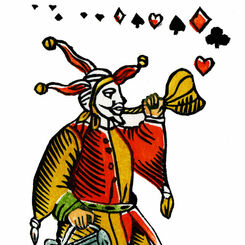
Woodblock and Stencil Joker
A limited edition art print of the 1984 woodblock joker.
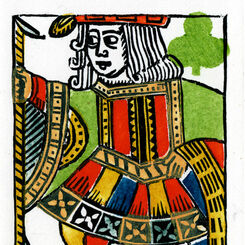
Woodblock and Stencil Jack of Clubs
A limited edition art print of the Jack of Clubs 1984 woodblock joker.
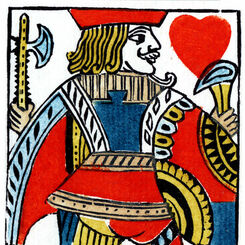
Woodblock and Stencil Jack of Hearts
A limited edition art print of the Jack of Hearts 1984 woodblock joker.
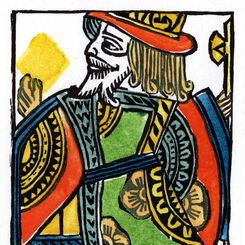
Woodblock and Stencil King of Diamonds
A limited edition art print of the King of Diamonds 1984 woodblock joker.
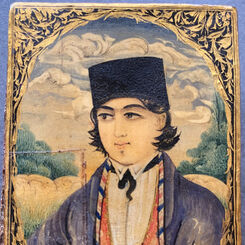
Âs Nas playing cards with box
Hand made cards from Persia
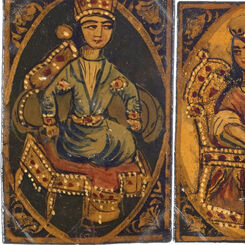
Âs Nas
Âs Nas type playing cards from Persia.
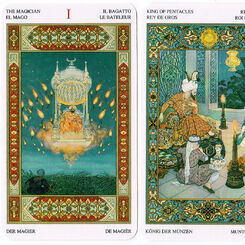
Tarot of the Thousand and One Nights (1001 Nights Tarot)
This tarot deck captures the idealised Eastern world's magic from the eighteenth and nineteenth cent...
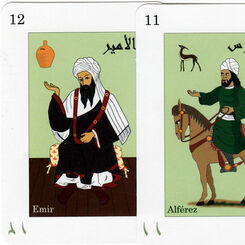
Juego de Naipes Andalusí
Andalusian playing cards designed by Marifé Montoya Carrillo with booklet by Jorge Lirola Delgado, 2...
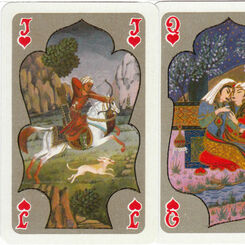
Persian Miniatures
Persian Miniatures, made in Hungary c.1990.
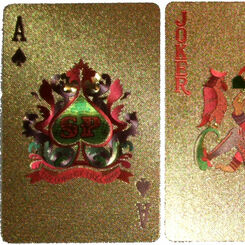
Burj Al Arab Jumeirah
Gold plated souvenir playing cards from the Burj Al Arab Jumeirah hotel in Dubai.
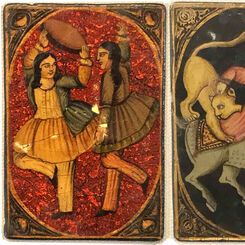
Qajar Dynasty playing cards
Qajar Dynasty playing cards, Iran, 19th century.
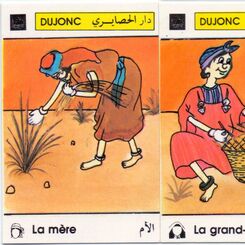
Les Artisans Tunisiens
“Les Artisans Tunisiens” Jeu de Sept Familles published by Éditions de la Mediterranée, Alpha S.A., ...
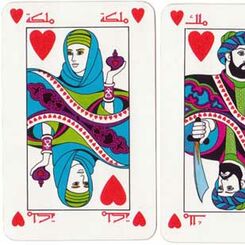
Boutros Arabic Playing Cards
Arabic playing cards designed by Evy Maros & Mourad Boutros.
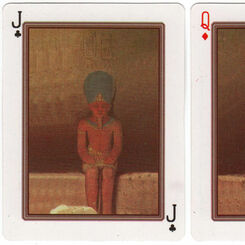
David Roberts
“David Robert” playing cards with artwork after Roberts’ Sketches in Egypt and Nubia.
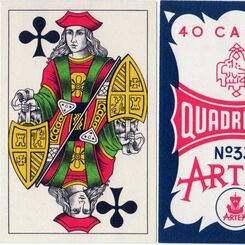
Artex Quadrilato for Tunisia
Artex Quadrilato No.333 for Tunisia
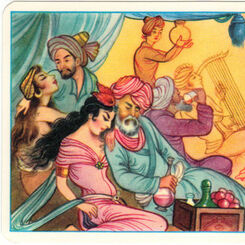
Hafez Fortune Telling Cards
Fortune Tellers use the Hafez Cards by interpreting the Hāfez poems printed on the card backs when c...
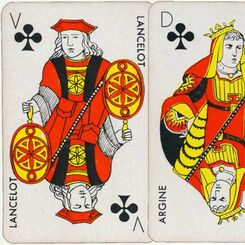
Monic
‘Monic’ brand playing cards, c.1930s
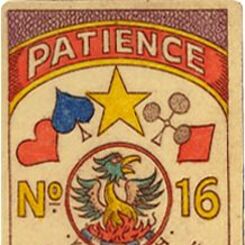
Karl Gerich No.16: “Patience Indien”
Karl Gerich's “Patience Indien No.16”, published in 1991, is adapted from Grimaud's “Whist Indienne”...
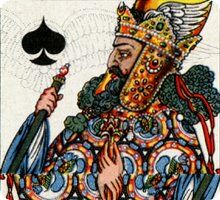
Iranian Popular Art
Representing Iranian culture and history and intended for a Persian market, these playing cards were...
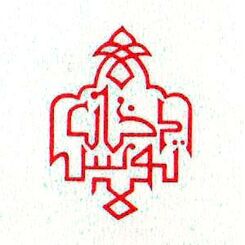
Tunisia
Playing Cards in Tunisia. Chkobba is one of the most popular card games in Tunisia, mainly played by...
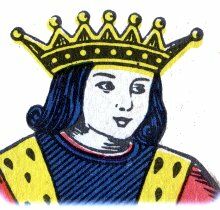
Anonymous
Anonymous Moroccan Playing Cards for Royal Air Maroc airlines and others...
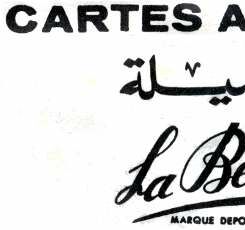
Chaudsoleil Wine
Chaudsoleil Red Wine advertising playing cards from Morocco.
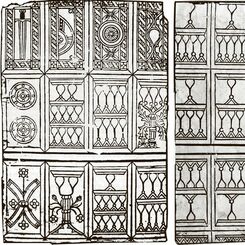
Moorish playing cards
These two uncoloured, uncut sheets of early Moorish playing cards were formerly preserved in the Ins...
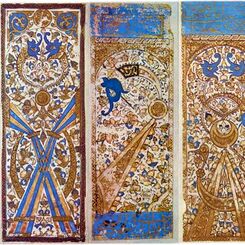
Mamluk Playing Cards
Nã'ib, the game of lieutenants... these cards are amongst the earliest Arabic playing cards ext...
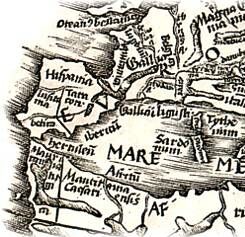
The History of Playing Cards
Playing Cards have been around in Europe since the 1370s. Some early packs were hand painted works o...
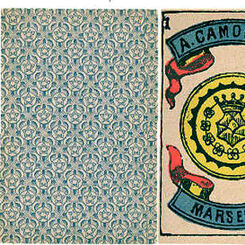
A. Camoin & Cie, Casablanca & Marseille
Spanish national pattern by A. Camoin & Cie, Casablanca & Marseille
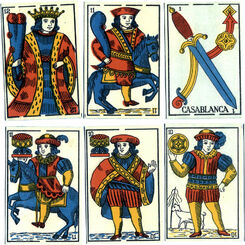
Casablanca playing cards from Morocco
Moroccan cards with the legend 'Casablanca'.
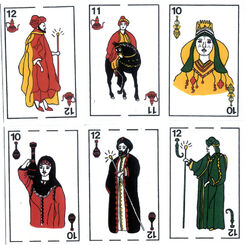
Moroccan Bank of Commerce and Industry
Advertising pack for the Moroccan Bank of Commerce and Industry, 1986.
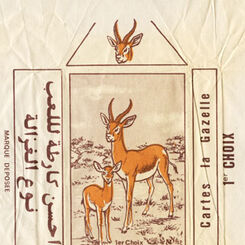
Cartes La Gazelle, Casablanca
Cartes La Gazelle, manufactured by Imprimerie de L’Entente, Casablanca
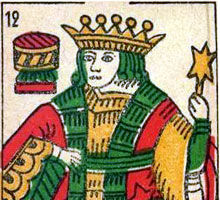
Algeria
Spanish suited playing cards produced by B. P. Grimaud (Paris) for Algeria, around 1910.
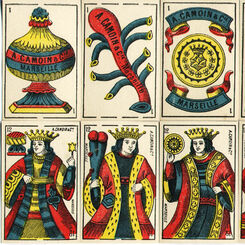
Playing cards in Morocco
The earliest literary references to playing cards in Europe refer to the game having been introduced...
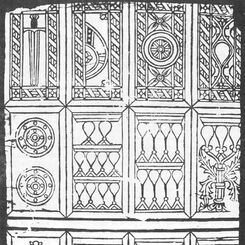
A Moorish Sheet of Playing Cards
This article was originally published in “The Playing-Card”, the Journal of the International Playin...


